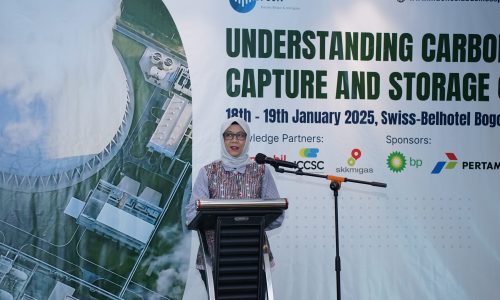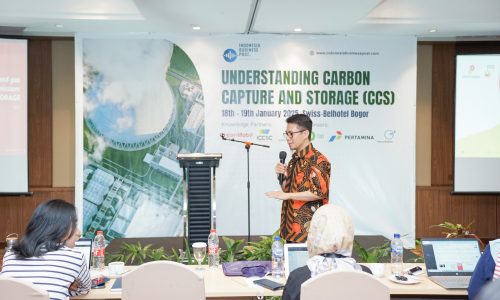The Indonesian Capital City Authority (IKN) has come under scrutiny regarding land usage rights, commonly known as Hak Guna Usaha (HGU), in the proposed new capital of Indonesia.
The revised Land Act, which outlines these rights, has raised concerns for its potential 190-year duration. This plan was incorporated into the revision of Law No. 3 of 2022 regarding the Capital City or IKN Law.
Bambang Susantono, Head of IKN, compared the situation to the controversial Omnibus Law on Job Creation, also known as the Cipta Kerja Law.
“It’s actually quite similar to the Cipta Kerja Law. It’s the exact reference,” states Bambang.
However, Bambang did not elaborate further on which specific articles in the Cipta Kerja Law served as a reference in the IKN Law. He also did not provide additional information when questioned about the 190-year HGU.
Previously, the Agrarian Reform Consortium (KPA) had raised concerns about Article 16A in the revised IKN Law. This new article was added to provide further regulation for the existing Article 16(7) in the old law. Article 16A stipulates that land rights agreements can take the form of HGU, Hak Guna Bangunan (HGB), and Hak Pakai. However, these rights are granted for an extended period in the new formulation.
For instance, HGU can now be granted in two cycles, each consisting of a 35-year period, a 25-year extension, and a subsequent renewal of 35 years. In total, during each cycle, HGU holders can have the right to possess and cultivate the land for a maximum of 95 years. With the possibility of two cycles, this means HGU holders could control and utilize land in the IKN region for up to 190 years.
Achmad Nur Hidayat, Economist and Public Policy Expert at UPN Veteran Jakarta, had previously expressed concerns about the HGU incentives for IKN investors. He argued that extending the duration of HGU rights could lead to foreign investors controlling large swathes of IKN land, potentially harming local communities and the environment.
Hidayat also noted that stringent criteria for granting HGU rights, along with weak land management oversight, could create imbalances between investor profits, environmental sustainability, and economic equity.
According to Hidayat, the government should take several steps to safeguard economic, social, and environmental interests in IKN. He suggested that any extension of HGU rights should be carefully considered, especially when the new government is formed in the 2024-2029 period.
Critics and responses on land rights
Critics argue that the extended land use rights stipulated in the Presidential Regulation No. 12 of 2023, which was signed by President Joko ‘ Jokowi’ Widodo, are even more generous than the colonial-era land laws.
The regulation grants HGU rights for up to 190 years, HGB for up to 160 years, and Hak Pakai for an extended period without specific limits. These critics point out that colonial-era laws only allowed concessions for plantations for a maximum of 75 years.
Dewi Kartika, Secretary-General of the Agrarian Reform Consortium (KPA), has argued that this new regulation is a significant step backward compared to colonial-era land laws.
She emphasized that even the colonial-era Agrarian Law of 1870 allowed concessions of plantations for a maximum of 75 years.
In the post-independence era, the Agrarian Law was repealed with the enactment of the Basic Agrarian Law in 1960, marking a move toward fundamental agrarian policy reforms.
Dewi further highlighted that the extended land use rights provided in Presidential Regulation No. 12 of 2023 deviate from the principles of the Basic Agrarian Law.
The new regulation guarantees land use rights for two full cycles, potentially totaling 190 years for HGU and 160 years for HGB. This deviation, she argued, represents a fundamental violation of the Basic Agrarian Law.
The extended land use rights, according to critics, lack provisions for revocation or sanctions, raising concerns about accountability and oversight. In contrast, the Basic Agrarian Law established a clear and gradual process for granting and extending land rights, with strict conditions to be met.
Critics have also noted that Presidential Regulation No. 12 of 2023 contradicts a previous Constitutional Court decision (Putusan MK Nomor 21-22/PUU-V/2007), which ruled against granting land concessions for such extended durations in one cycle.
In response to the criticism, Dhonny Rahajoe, Deputy Head of IKN, explained that the goal behind granting extended land use rights is to make IKN’s state-owned land competitive with privately owned land in the surrounding areas.
He argued that this is essential to attract investors to IKN and prevent them from exclusively purchasing land in the vicinity, which would be detrimental to the intended development of the new capital.
Dhonny clarified that the ease of doing business was already outlined in the Cipta Kerja Law and was further enhanced by Presidential Regulation No. 12. He stated that HGB rights could be granted for 30 years initially, with an evaluation after 5 years and the potential for an additional 50-year extension.
The controversy surrounding extended land use rights in IKN remains a contentious issue, with concerns about land ownership, environmental impact, and economic equality at the forefront of the debate. Critics argue that a careful and balanced approach is necessary to address these concerns while still attracting the necessary investments for the development of the new capital.









